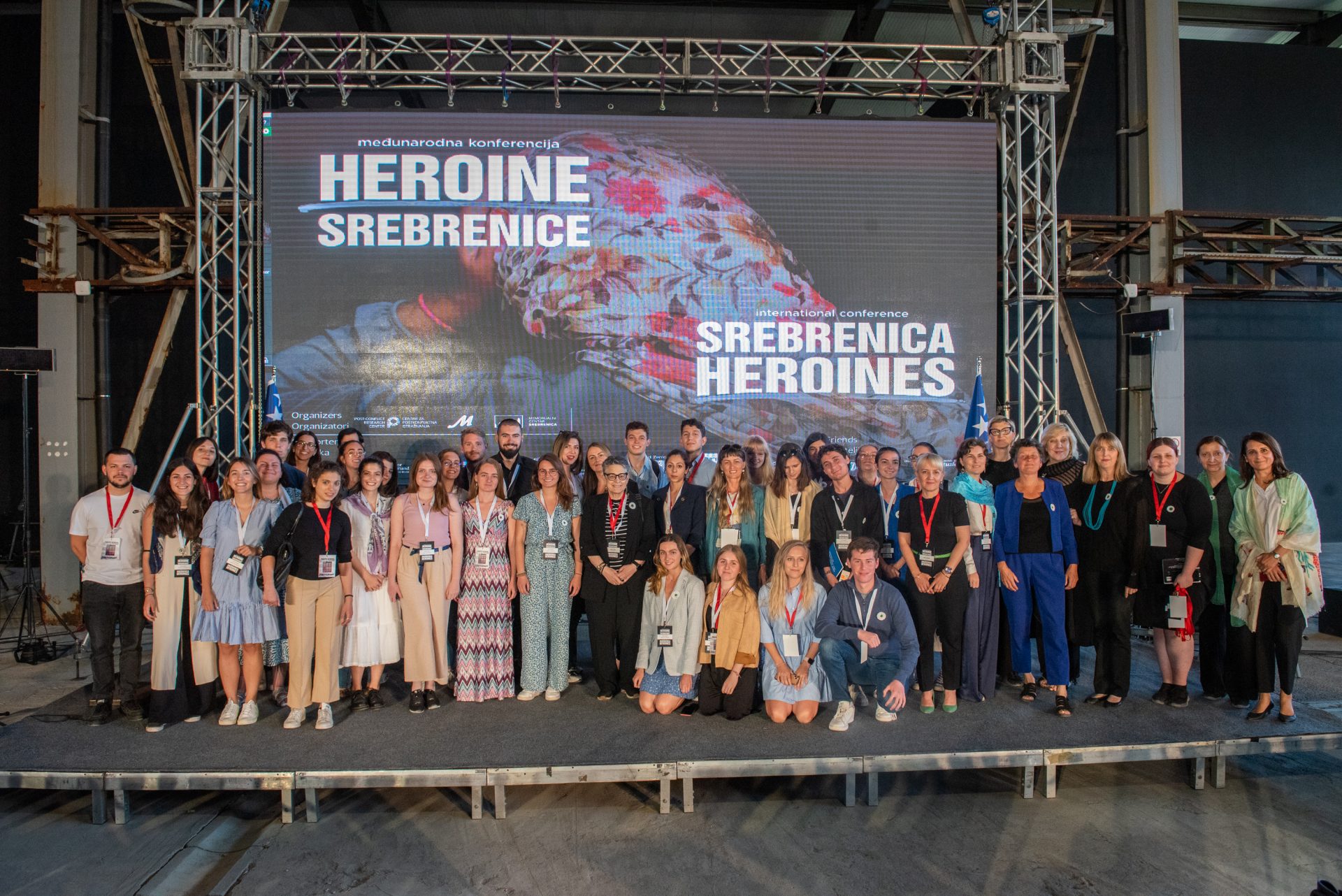
Witnesses, fighters, and heroines are the words used to describe the mothers and women of Srebrenica. For 27 years, they fought for the truth, the existence of the Srebrenica Memorial Center, to find the remains of their loved ones, and to punish the perpetrators of the most terrible crimes.
Their voices have brought the Srebrenica genocide to the attention of the whole world. Their struggle and the roles of women in post-conflict societies were discussed at the Srebrenica Heroines International Conference, which was held on July 10 at the Srebrenica Memorial Center on the occasion of the 27th anniversary of the Srebrenica genocide.
The conference was organized by the Movement of Mothers of Srebrenica and Žepa Enclaves, the Post-Conflict Research Center, and the Srebrenica Memorial Center, and its panelists included women from Srebrenica, the Podrinje region, Bosnia and Herzegovina, the wider Balkan region, and around the world. In four separate panels – “Missing Persons,” “Judicial Legacies,” “Memorialization & Role of Mothers,” and “Women’s Activism in Politics” – the panelists discussed the immeasurable role of women in Bosnian-Herzegovinian society and their contribution to changing international law. They also encouraged other women around the world to never give up.
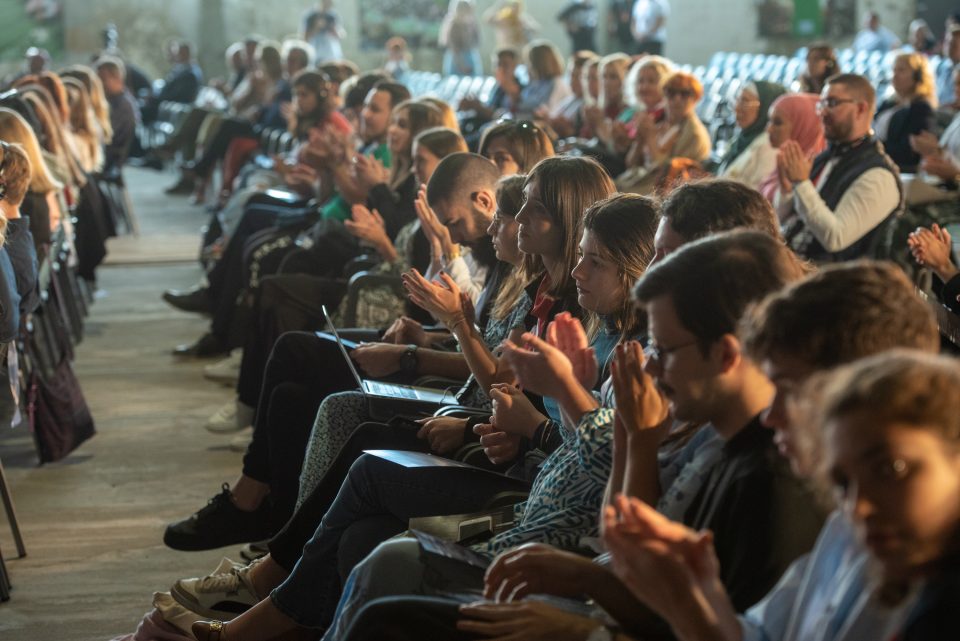
Munira Subašić, president of the Movement of Mothers of Srebrenica and Žepa Enclaves, emphasized the significance of holding the “Srebrenica Heroines” conference at the place where the genocide was committed. Her message to all the women of the world was to follow the example of the mothers of Srebrenica: “We are women who lost those closest to us, but we stand proud. We have managed to raise [our children] without hatred or a need for retaliation.”
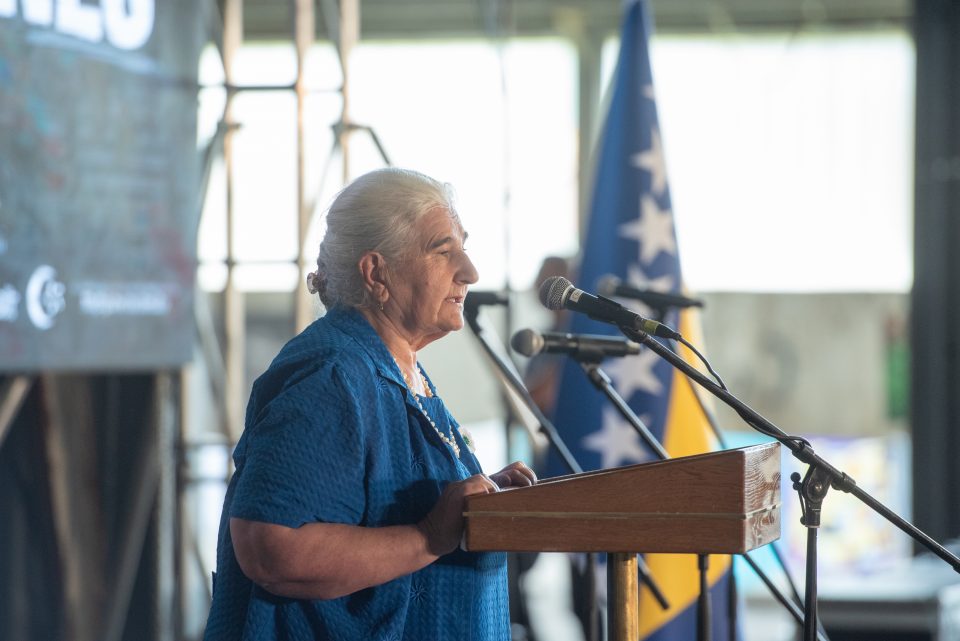
Alice Wairimu Nderita, United Nations Special Adviser for the Prevention of Genocide, highlighted the necessity of talking about the Srebrenica genocide, stating “History teaches us that genocide denial and glorification of war criminals divides peoples, communities, and states. Denying genocide constitutes an attack on human dignity, especially to the victims and survivors. We must confront it.” She also applauded the courage of the mothers of Srebrenica who she noted deserve the greatest credit for bringing war criminals to justice.
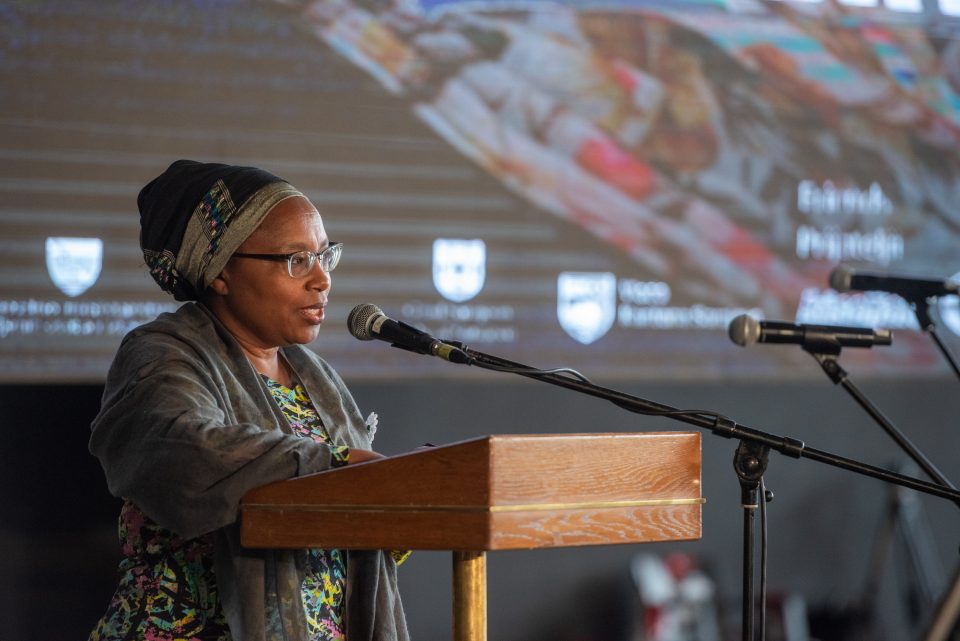
Emir Suljagić, director of the Srebrenica Memorial Center, said that the women survivors set the example, giving everyone a sense of direction and purpose after the genocide in July 1995.
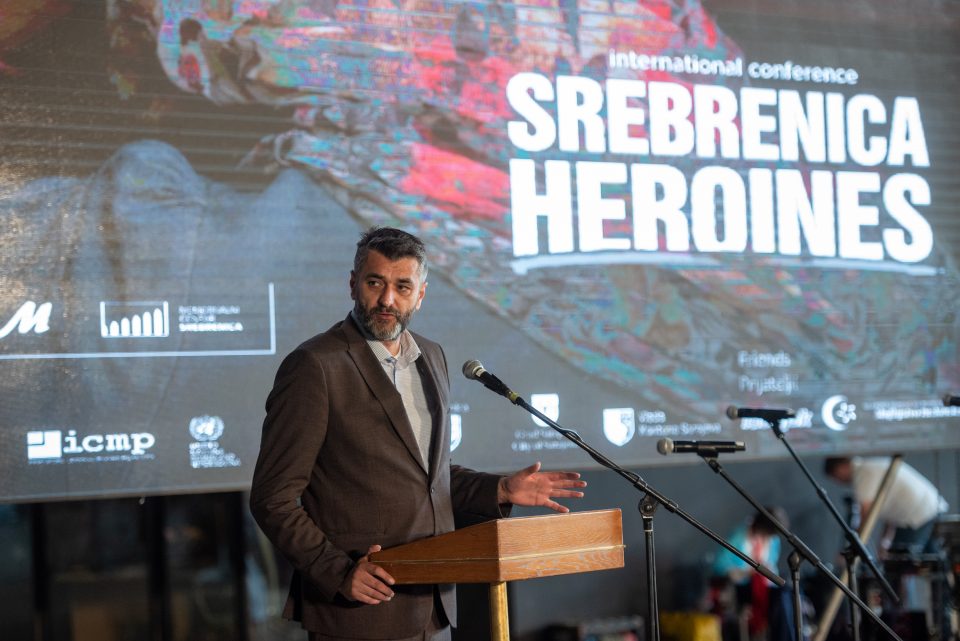
“Nobody liked us after 1995. No one welcomed us. People didn’t even know what had happened here in July 1995, or even before that. This part of the world here had been taken back to the Middle Ages, and these women showed us direction and purpose. Thanks to them, we knew what to do next,” explained Suljagić.
Velma Šarić, president and founder of the Post-Conflict Research Center, presented the background of the Movement of Mothers of Srebrenica and Žepa Enclaves. She pointed out that the mothers of Srebrenica contributed immensely to the process of proving genocide and war crimes in Bosnia and Herzegovina in the long-term fight.
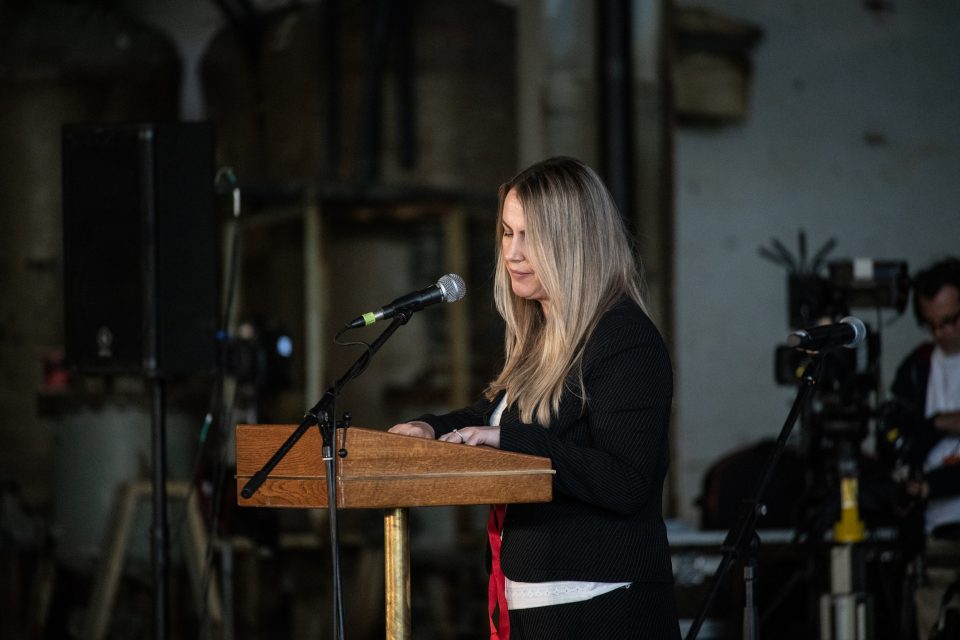
“They did this through their brave testimonies, but also, very frequently, by submitting evidence and everything that was necessary just to prove that their husbands, fathers, brothers, and sons had actually existed,” added Šarić.
Hamdija Fejzić, president of the Organizing Committee for the Commemoration of the 27th Anniversary of the genocide, said that in the genocide against Bosniaks in Srebrenica, thousands of women were left without husbands, brothers, and sons, but persisted, nevertheless, in the fight for truth and justice.
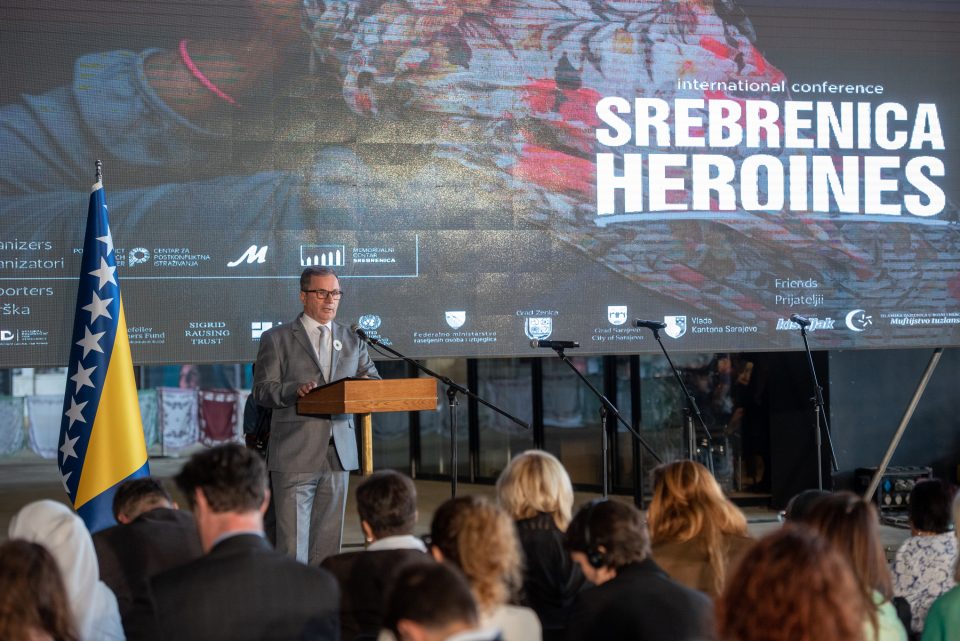
“They are the voice of those who cannot speak because they have been killed. In the first years, all of them hoped to find their loved ones, for them to return alive. Then they spent years hoping to find the bones of their loved ones, to bury them with dignity as they deserve, to find peace for them and their loved ones,” said Fejzić, during the opening remarks at the Srebrenica Heroines Conference.
The Indomitable Spirit of the Mothers of Srebrenica
Kada Hotić, Vice President of the Movement of Mothers of Srebrenica and Žepa Enclaves, Kathryne Bomberger, Director-General of the International Commission on Missing Persons (ICMP), Pakiza Colo, Head of the ICMP Data Coordination Department, Dragana Vučetić, senior forensic scientist and anthropologist at ICMP and Alma Džaferović, head of the War Crimes Department of the Tuzla Canton Prosecutor’s Office addressed the public during the panel Missing Persons.
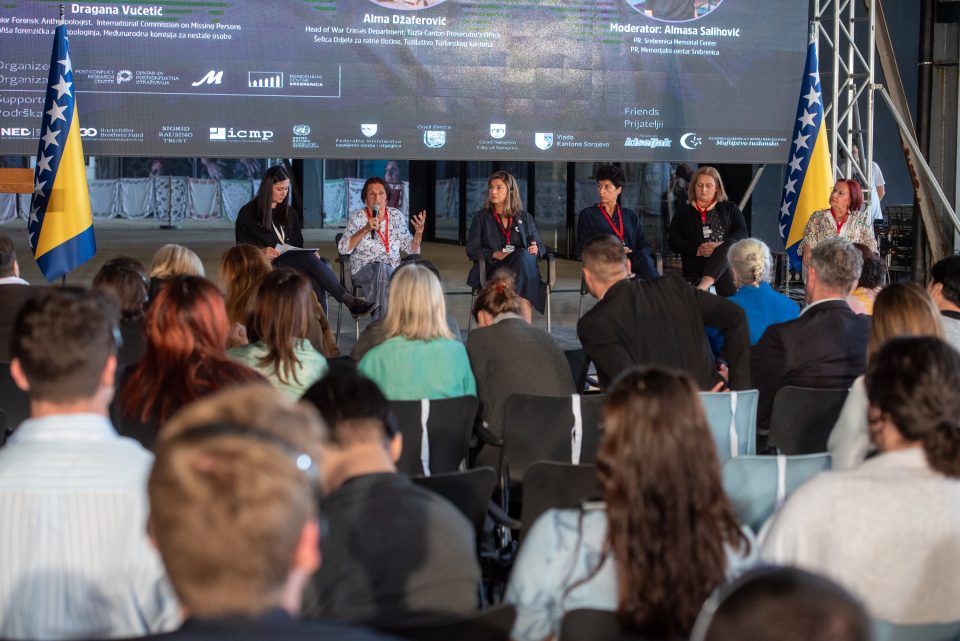
Hotić said that they fought for their lives with superhuman strength during the war, but also that women’s adaptability played a key role in this effort. “Many lives were taken but they did not kill our spirit,” said Hotić.
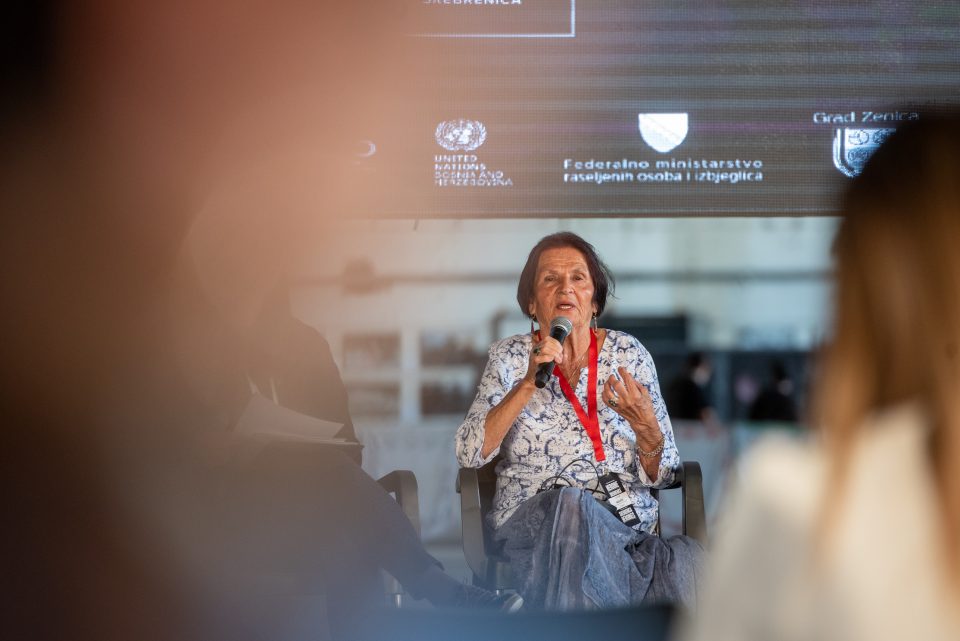
Bobmerger spoke about the strength and love of the women of Eastern Bosnia: “I was amazed by not only their strength to fight for answers, but the love that they had for each other and the other families of those missing. From the beginning, they united not only as the Mothers of Srebrenica, but as the mothers of all Yugoslavia.”
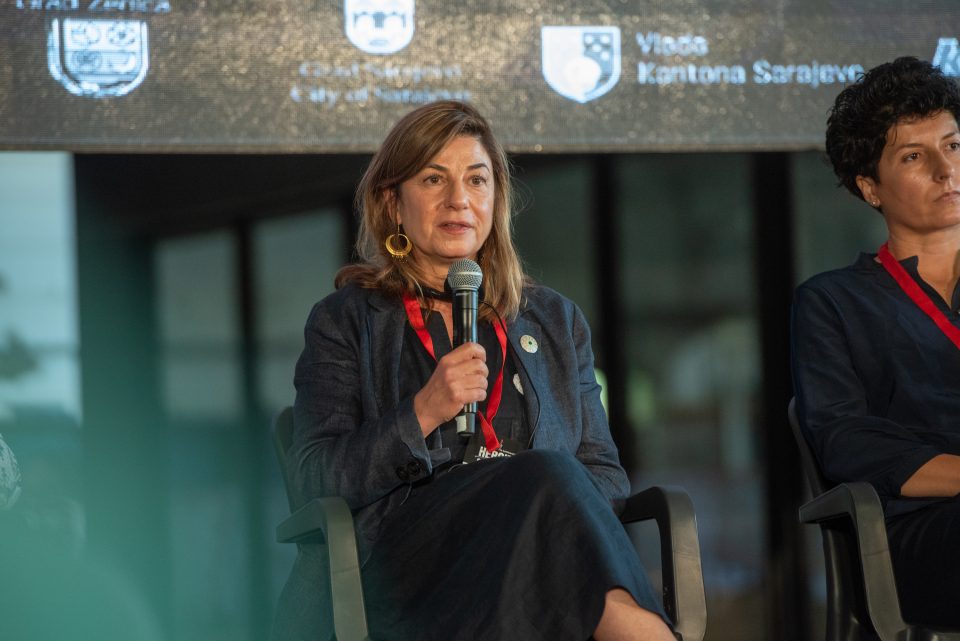
“Together with the mothers of Srebrenica and mothers from the region, we managed to use the most advanced DNA methods to identify seven of the eight thousand missing in Srebrenica. This is a fact that has been confirmed by international and domestic courts, and I think that all this says the most important thing: Please, stop denying the genocide,” Bomberger continued.
The panel “Judicial Legacies” addressed the strength of the mothers of Srebrenica and other women of Eastern Bosnia who testified before the International Criminal Tribunal for the former Yugoslavia (ICTY). Through their courage, they made instrumental contributions to changing international law to see rape classified as a war crime, as well as to ensuring the perpetrators of crimes in Srebrenica were held accountable. The panelists at this session were Šuhra Sinanović, president of the Association “Women of Podrinje – Bratunac, Laurel Baig, Senior Appeals Counsel in the Office of the Prosecutor of the Mechanism, Diana Kajmaković, prosecutor of the Prosecutor’s Office of Bosnia and Herzegovina, Rada Pejić Sremac, coordinator of the Mechanism for Informing Communities Affected by the Conflict program at IRMCT, Tanya Domi, professor at Columbia University in New York, and Jasna Zečević, president of the Vive Žene Tuzla Association.
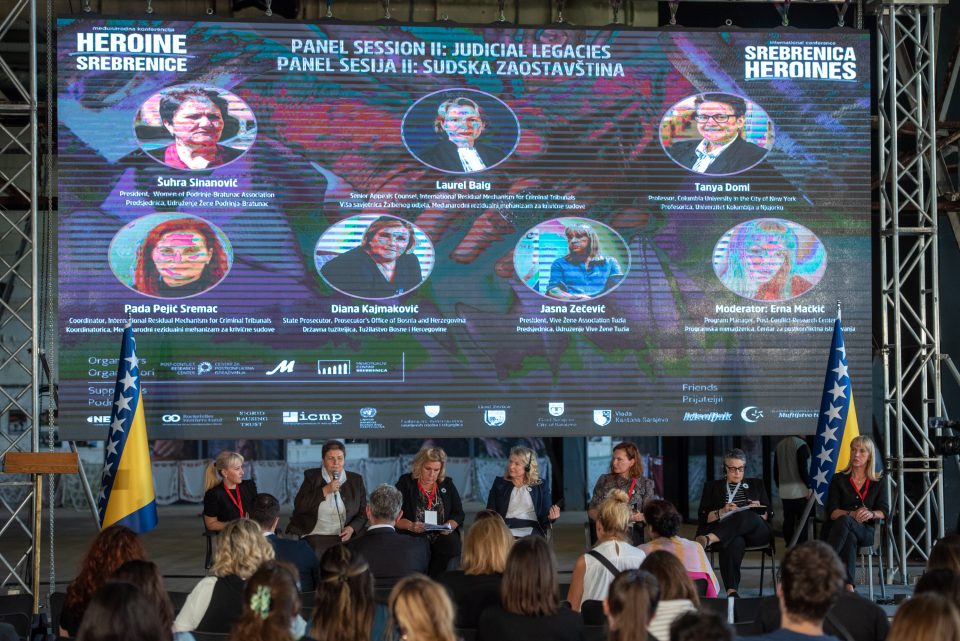
“There cannot be justice unless women are part of that justice,” asserted Baig, who was in the appeals process at the trials of Radovan Karadžić and Ratko Mladić, the highest political and military leaders of the Republic of Srpska. For the genocide in Srebrenica and crimes in Bosnia and Herzegovina, they received 40 years in prison and life sentence respectively.
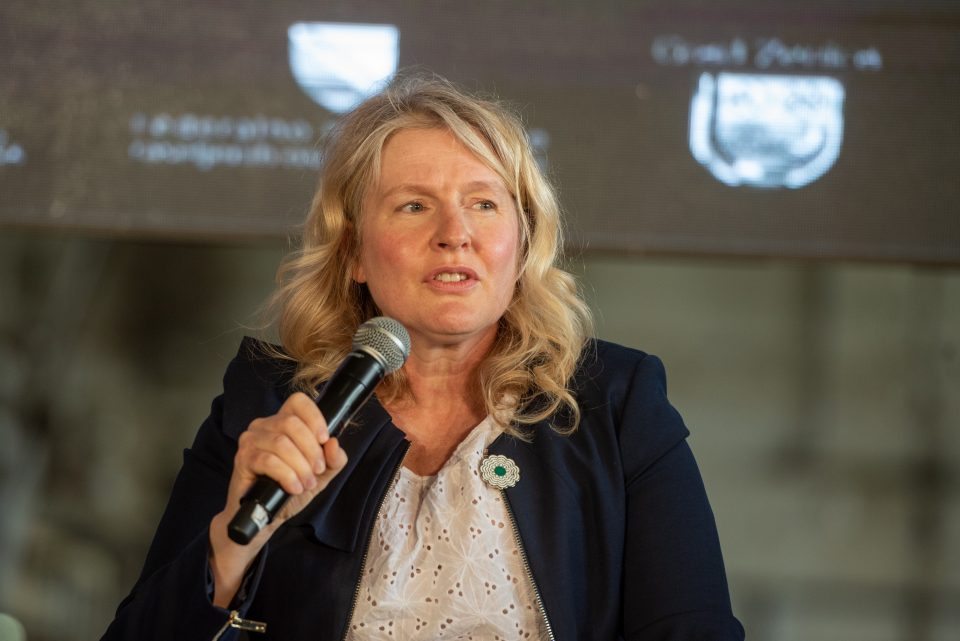
In this case, healing does not come with time. Time is our enemy. All of your testimonies help us to understand that women can and are surviving, that the women of Eastern Bosnia survived,” said Kajmaković. She emphasized the immense value of the work of international judges and prosecutors in trials for genocide and war crimes.
The lessons of Bosnia and Herzegovina, according to Professor Domi, can be used in courts around the world.
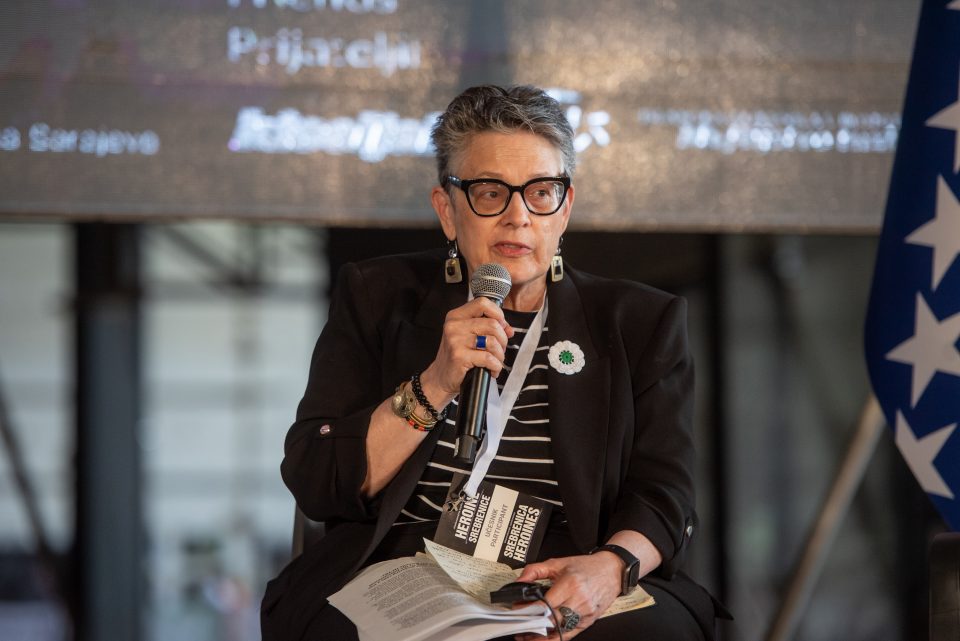
“There is No Evil that Women Cannot Defeat”
The panel “Memorialization and the role of mothers” panel welcomed Fazila Efandić, president of the Srebrenica Mothers Association, Dunja Mijatović, European Council Commissioner for Human Rights, Tali Nates, founder and director of the Johannesburg Holocaust & Genocide Centre, Annick Lacroix, vice-president of the Paris Committee Mothers for Peace, Jadranka Miličević, co-founder and director of the CURE Foundation and Azra Fazlović, Tuzla Muftiship.
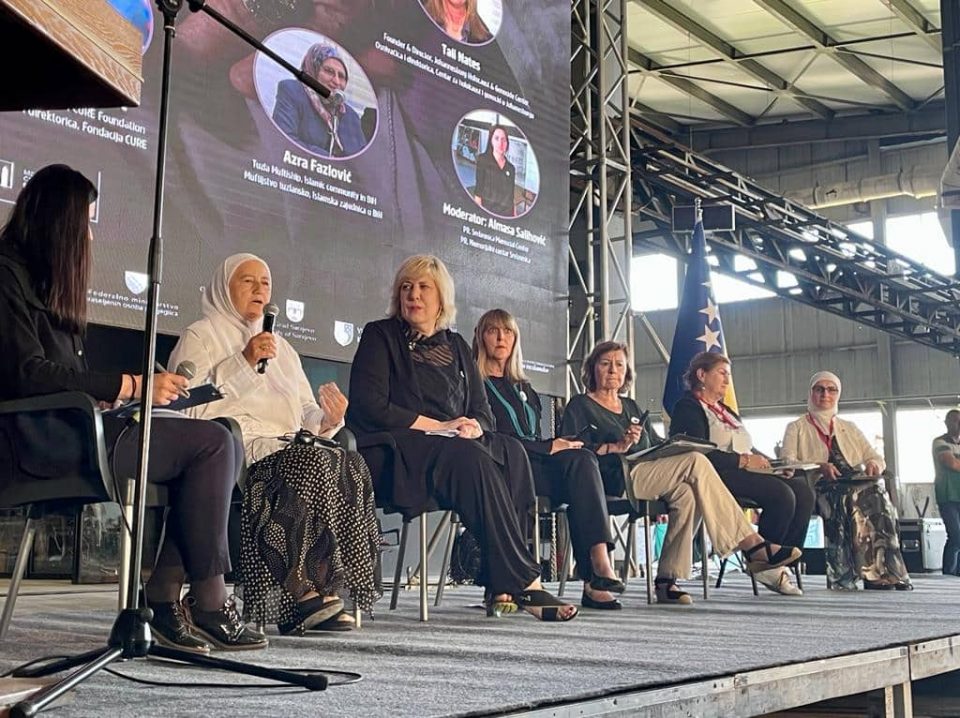
Efendić recalls that while they were dealing with pain and sadness, they were also fighting, together with other mothers and women, for shared goals: to find their loved ones and bring the perpetrators to justice.
The importance of art was highlighted by Dunja Mijatović, in respect to the artistic installation “Mothers Scarf” which was opened at the Memorial Center on the occasion of the 27th anniversary. The exhibition is comprised of hundreds of donated scarves, which, Mijatović stated, is a testament to what we can do. She went on to express the hope that the Srebrenica Memorial Center will continue to be a place that promotes learning about the atrocities that were committed in Srebrenica, to ensure they is never repeated.
“When we speak about memory, we also need to speak about action and we need to act faster,” Nates asserted.
The Minister of Defense of the Netherlands, Kasja Ollongern, addressed the participants of the Srebrenica Heroines Conference, pointing out that the mothers of Srebrenica continue to make an important contribution to the fight for truth and justice. “They are a reminder that there is no evil that women cannot defeat,” Ollengern added.
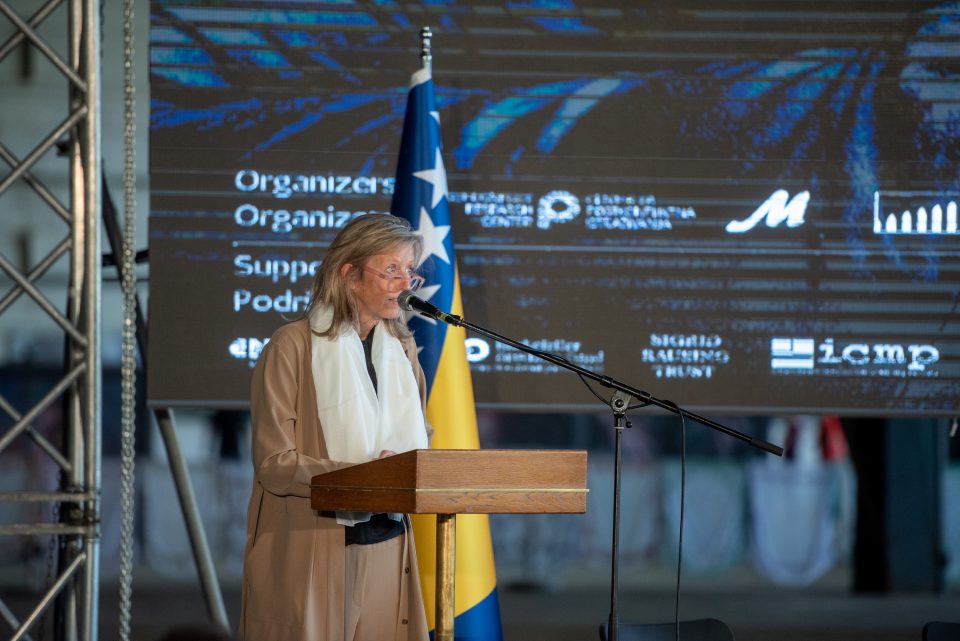
The panel “Women’s Activism in Politics” included: Munira Subašić, president of the Movement of Mothers of Srebrenica and Žepa Enclaves, Tineke Strik, member of the European Parliament, Edita Đapo, minister of tourism and environment of the Federation of BiH, and Alma Čolo, member of the in the House of Representatives of the BiH Parliamentary Assembly.
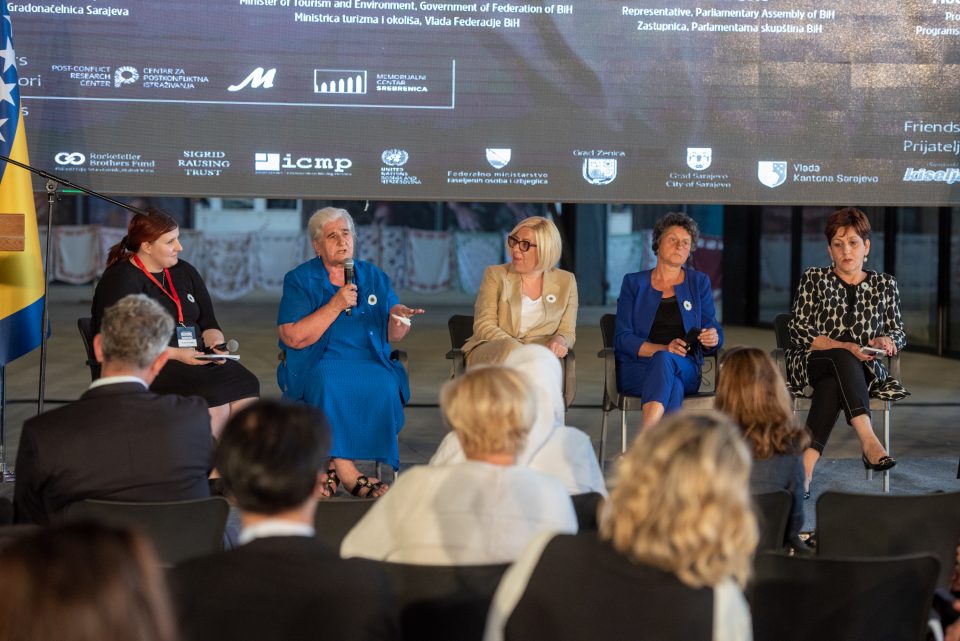
Subašić told how the struggle of the mothers of Srebrenica for justice and truth began. “We went to protests, asked for information about our loved ones, collected statements that we sent to The Hague, testified before the courts, fought to find the bones of our loved ones and bury them here in this Memorial, fought for special recognition, helped with education and upbringing children who were left without one or both parents… Even today we are fighting so that the genocide is not denied. Women can do it all,” explained Subašić.
“The mothers of Srebrenica are a source of strength for all of us. We, organizations and politicians, should and must continue to work together for a better country for our children and future generations,” said Čolo.
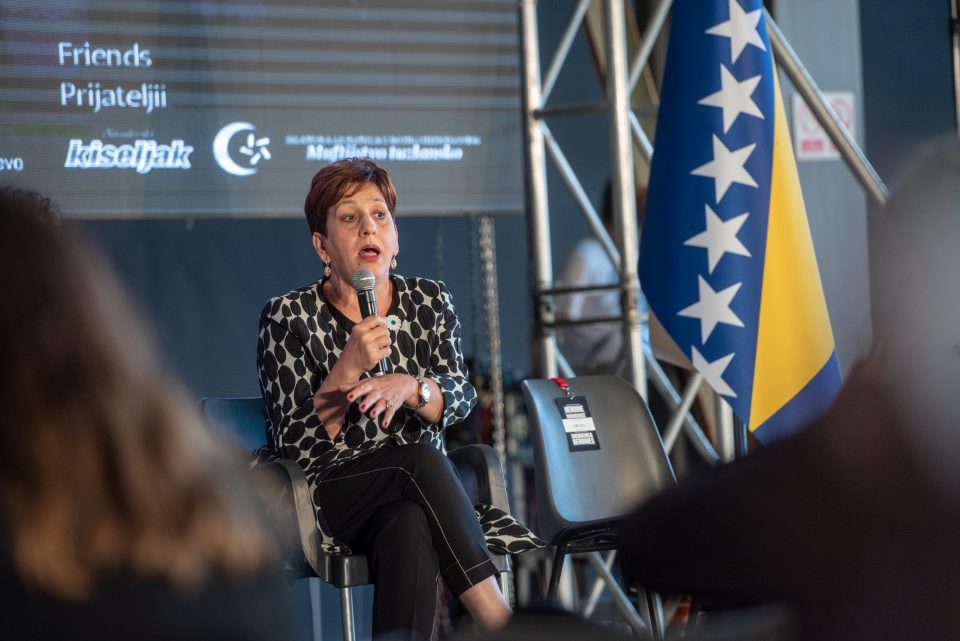
Acknowledgement, Then Reconciliation
Tineke recalled that few weeks ago she was in Republika Srpska, where she says there was a normal atmosphere, as if nothing had happened. “That worried me a lot, because if they don’t acknowledge it, then how to start the process of reconciliation. We can only achieve reconciliation if there is acknowledgment of what has been done. We cannot continue not punishing the denial and glorification of genocide,” said Tineke.
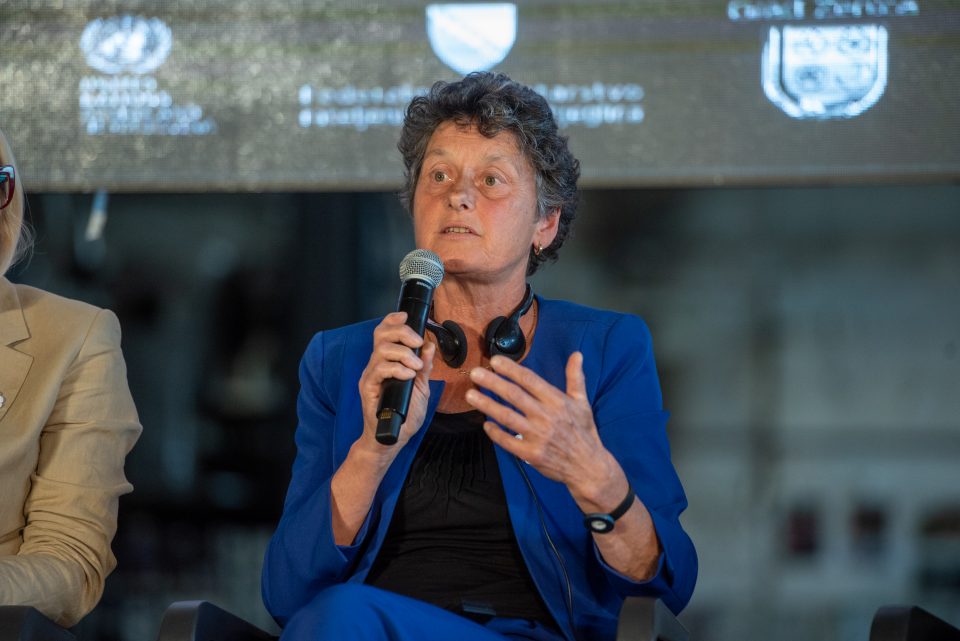
For Minister Đapo, the mothers of Srebrenica are a great inspiration. “They showed us that when women work together, they can send a very strong message to politicians and the whole world,” Đapo added.
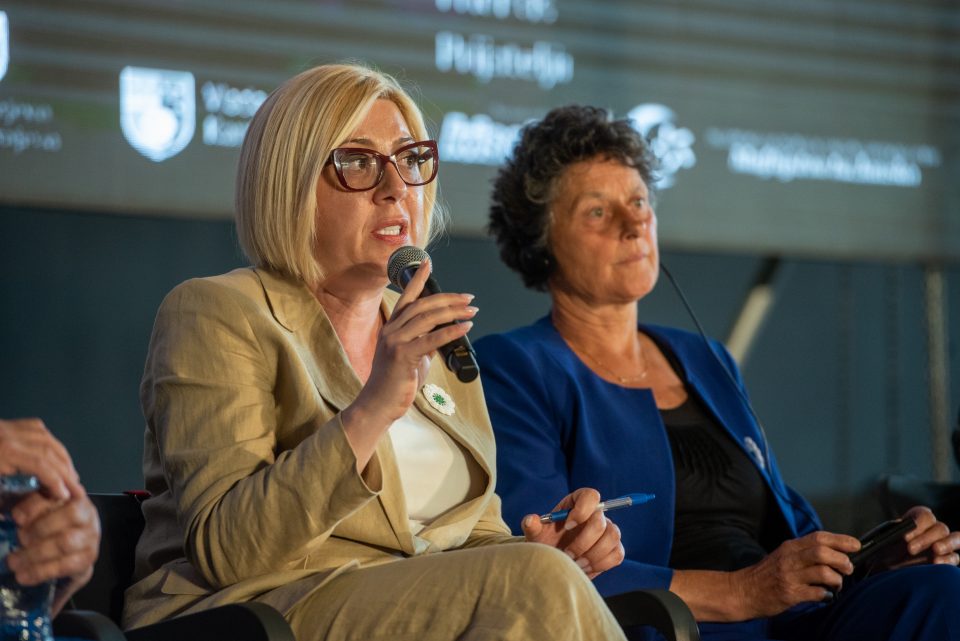
The closing remarks of the Srebrenica Heroines Conference were delivered by Judge Graciela Gatti Santana, President of the International Residual Mechanism for Criminal Tribunals.
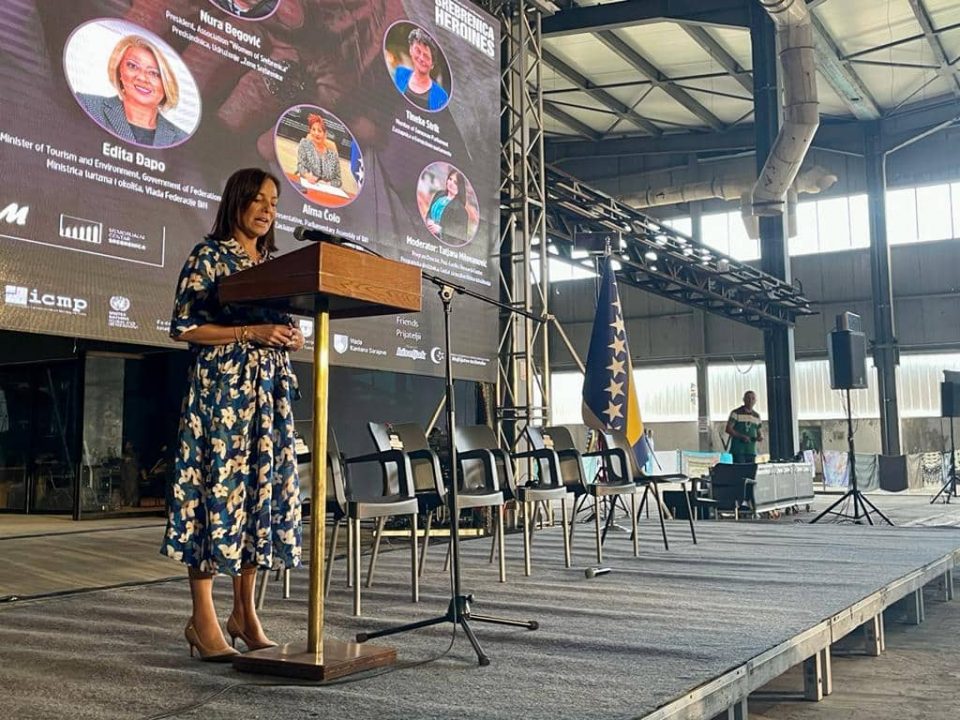
“Women are among the most affected by conflict. In Srebrenica, many of you lost your loved ones, while others were victims of rape. Nevertheless, you led the fight and inspired others with your persistence and determination,” said Judge Santana in her first address as president of the IRMCT.
The conference included short videos in memory of the mothers of Srebrenica who have passed on, “In memoriam: Srebrenica Heroines” and “Mother,” produced by the Post-Conflict Research Center, and “Srebrenica Through Women’s Eyes” by the ICTY.
The conference opened with a musical performance by the female vocal ensemble Allegro: Lullaby “Nine sine, spavaj sine,” arranged by L. Jusić, and “Što te nema” (text by Aleksa Šantić) accompanied by Elvira Solak on guitar.
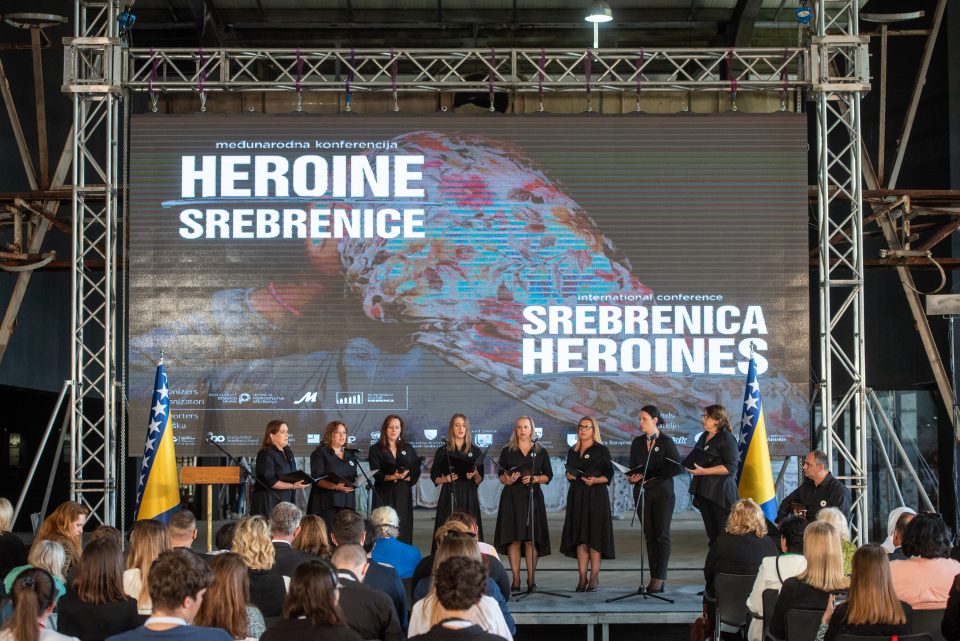
The conference was moderated by Almasa Smajlović, PR of the Srebrenica Memorial Center, Tatjana Milovanović, project director of the Post-Conflict Research Center, and Erna Mačkić, project manager of the Post-Conflict Research Center.

The Srebrenica Heroines Conference was held thanks to the generous support of the National Endowment for Democracy, the Sigrid Rausing Trust, the Rockefeller Brothers Fund, the City of Zenica, the Federal Ministry of Displaced Persons and Refugees, the City of Sarajevo, the United Nations in BiH, and the International Commission on Missing Persons (ICMP). Support for the conference was also provided by Sarajevo Kiseljak and the Tuzla Muftiship.





